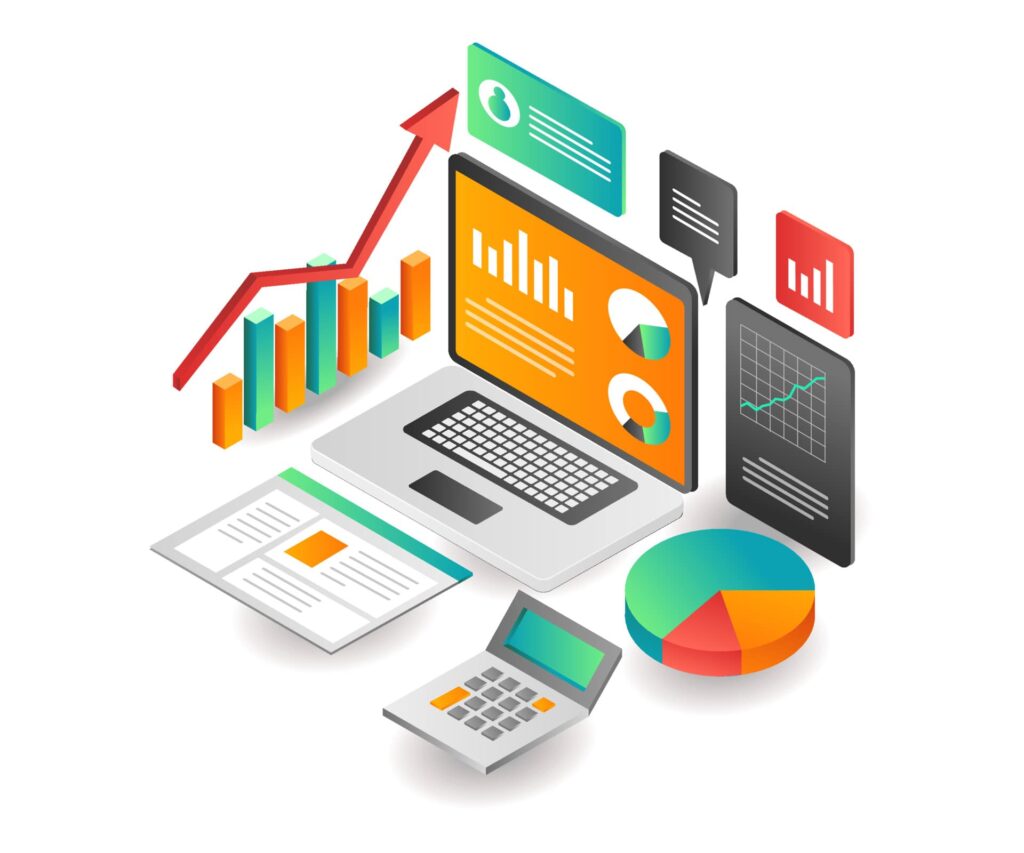Remote Data Jobs: Availability & Salary in 2024
The growth of remote work has been rising across all industries, especially in the tech domains. With many companies embracing flexible and hybrid work models, remote data jobs have become increasingly popular even after the end of the Covid 19 pandemic.
In 2024, we can expect to see even more remote opportunities for data analytics professionals. Next, we will explore the types of remote data jobs available, their availability, typical salaries, and potential drawbacks.
Types of Remote Data Jobs

There are various remote data jobs spanning multiple roles and positions. They can be performed entirely remotely with the right technologies and setup. Some of the most common include:
- Data analyst: Collects, organizes, and analyzes large datasets to uncover insights. Besides, they may be required to communicate findings to stakeholders.
- Data engineer: Builds and maintains data pipelines and infrastructure and ensures data systems run smoothly.
- Data scientist: Uses statistical and machine learning techniques to extract value from data. They also may solve complex problems through modeling.
- Database administrator: Installs, configures, optimizes, secures, and troubleshoots database systems.
- Business intelligence developer: Designs and develops BI tools, dashboards, reports, and applications.
- Data governance manager: Develops data governance standards and policies and ensures regulatory compliance.
- Data visualization specialist: Visualizes data insights through charts, graphs, and interactive reports. They also may be involved in enhancing data storytelling.
Availability of Remote Data Jobs
The availability of remote jobs and positions generally has grown tremendously, thanks to remote work normalization in almost all fields and industries. FlexJobs identified data science and analytics as among the top fields for remote work in 2024.
Leading job sites like LinkedIn, Indeed, Dice, and ZipRecruiter have thousands of listings for remote data roles across levels. Startups and tech companies increasingly hire remote data talent. Large enterprises- like Amazon- often post remote data opportunities as well.
According to different surveys, the majority of full-time U.S. workers want a hybrid or remote setup. With data teams distributed globally, location matters much less today. This expanded talent pool increases options for data leaders hiring remotely.
As the demand for remote data specialists keeps increasing, the market imbalance favors those seeking such roles. Companies compete for remote data talent through increased pay, bonuses, and benefits. For skilled professionals, it’s an ideal time to get into remote data careers.
However, entry-level applicants may find it harder to get remote data jobs without experience. Internships and junior roles still tend to require some in-office time. Once established, transitioning to fully remote work becomes much easier.
Remote Data Jobs Salary

Salaries for remote data positions generally align with national averages, but not in all countries. Yet, data pros gain savings without a daily commute. The average 2024 salaries for common remote data jobs in the U.S. are projected as follows:
- Data Analyst: 72,800 US dollars
- Data Engineer: 109,800 US dollars
- Data Scientist: 120,200 US dollars
- Database Admin: 93,900 US dollars
- Data Governance Manager: 94,400 US dollars
- Data Visualization Specialist: 92,000 US dollars
This income is expected to rise even further as time goes by, thanks to the high market demand. For senior roles and specialized skills like machine learning, salaries may exceed 150,000 US dollars. Lower costs of living and tax incentives may further increase remote earnings.
Of course, pay varies widely by employer, location, qualifications, and years of experience. However, remote data professionals today have exceptional salary prospects overall.
Drawbacks of Remote Data Jobs
While offering many advantages like flexibility and work-life balance, remote data jobs also come with some potential downsides:
- Collaboration challenges: Lack of in-person interactions can make complex team projects more difficult.
- Communication issues: Miscommunications may increase between remote coworkers.
- Distractions at home: Noise, kids, and pets can be disruptive at a home office.
- Limited mentorship: Junior team members have fewer opportunities to learn in person.
- Reduced promotion visibility: It’s harder for managers to observe and reward remote workforce.
- Social isolation: Possible feelings of loneliness and disconnection from not seeing colleagues daily.
- Tech problems: WiFi and software issues can hurt productivity. Lack of IT support onsite.
- Overwork culture: Pressure to be “always on” is real, which makes it harder to separate work and personal life.
Companies and employees can take steps to minimize these drawbacks through intentional communication, inclusion, tech support, and respecting boundaries. Overall, the benefits tend to outweigh the downsides for most remote data professionals.
Final Thought
Remote data jobs will continue seeing massive growth into 2024. For skilled data experts seeking location flexibility and work-life balance, it’s an advantageous time to pursue remote opportunities.
Salaries remain competitive, with additional lifestyle benefits. While tradeoffs exist in remote work, data teams have proven they can collaborate effectively when given the right tools and culture.
The data jobs landscape will only become more virtual in the years ahead due to the widespread of AI tools that make data analytics easier and even more available.
Denarjes is one of the leading providers of data analytics services and data position recruitment. You can contact us now to explore our services in this domain.
Frequently Asked Questions
What Are the Most In-Demand Remote Data Jobs?
Data scientist, data engineer, and data analyst roles are in high demand for remote hiring.
Do I Need Prior Remote Experience to Get a Remote Data Job?
Not necessarily but having some experience working virtually helps. Many companies hire data pros new to remote work too.
Are Salaries Lower for Remote Data Jobs Than In-Office Roles?
In most cases, remote data salaries are comparable to or even higher than in-office pay. Some companies also adjust for a lower cost of living.
What Soft Skills Are Most Important for Remote Data Jobs?
Communication, collaboration, time management, and self-motivation are critical soft skills to succeed in a remote data role.
Can I Work Remotely Full-Time or Do I Need to Come into an Office Occasionally?
Most data jobs today are fully remote, but some do require coming onsite for training, events, or meetings a few times a year.
Is It Easy to Advance My Data Career Working Completely Remotely?
It may be harder to get noticed for promotions fully remote, but many data pros have progressed successfully in remote roles with proactive communication.

